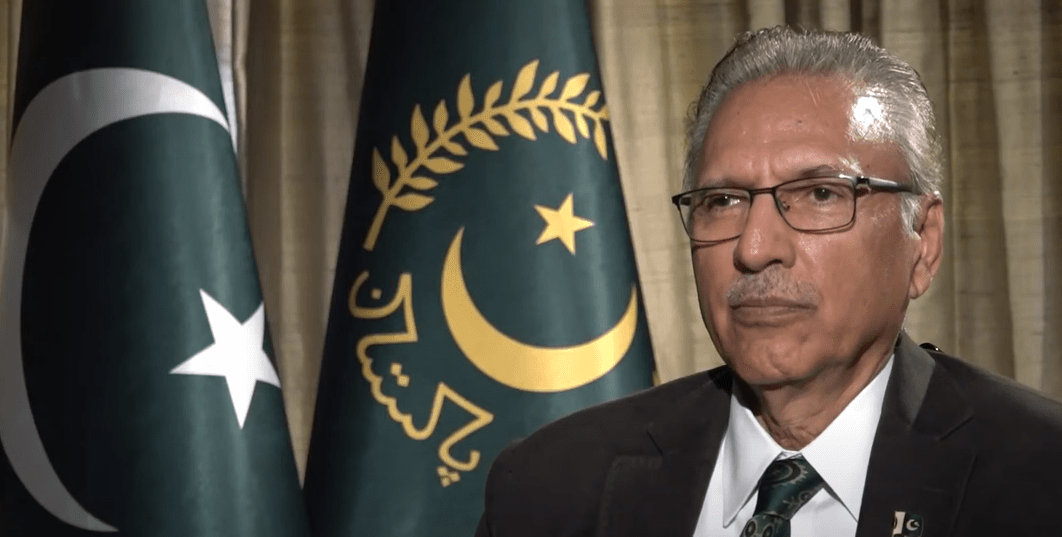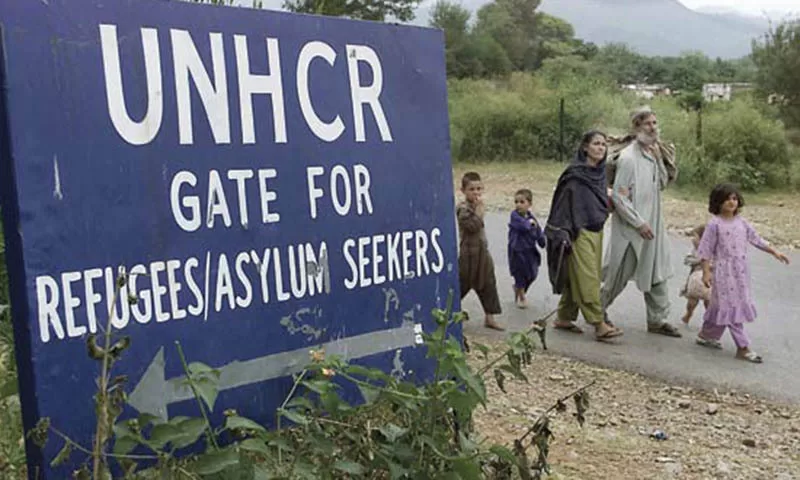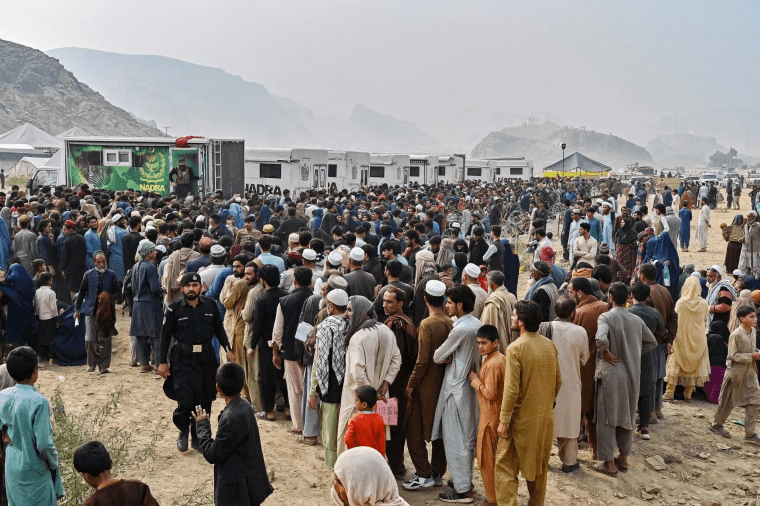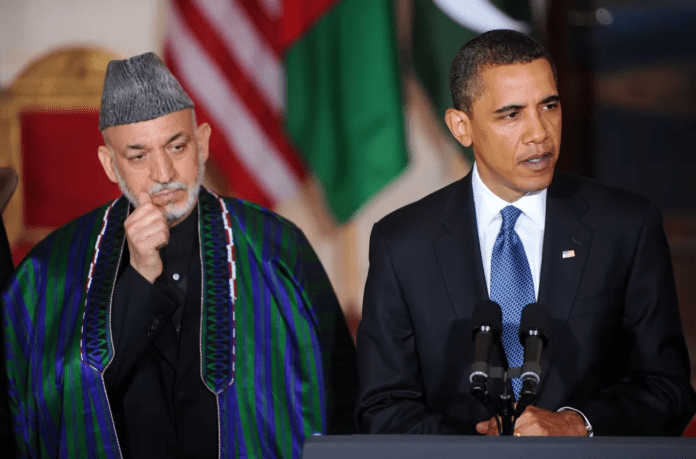Pakistan has never invested so much time and resources on any of its neighbours, but Afghanistan. Pakistan lived for decades in an existential threat but was forthcoming for its western neighbour. It ruined its social fabric with Kalashnikov, drugs and terrorism, but stood fast with the plight of Afghans and continued to host more than four million refugees at the peril of its own survival. Yet the relationship has been on the rocks and no dispensation in Kabul has been on pleasing terms with Islamabad. From the monarchs to Northern Alliance and from the radical militia to the White House-sponsored Karzai and Ghani regimes, none saw from the same prism while dealing with Pakistan.
And now the Taliban 2.0, who could have not been ushered into power without the largesse of Islamabad, are on a warpath for umpteenth reasons best known to them. This policy surely deserves some deep retrospection.
Pakistan’s new policy of sending back illegal Afghans is now at the centre-stage of controversy. Kabul is frowning. Many in Pakistan too believe that shunting back the men in shadows has come at the wrong time. They said when the country had taken a toll for so many years, packing them back home at a time when internal security is at the crossroads and political instability is at its peak was a wrong decision. But there are pundits at the helm of affairs who vehemently advocate that Islamabad is well within its right to do so, and the policy will have far-reaching positivity on social harmony.
President Dr Arif Alvi, in an interview with the Voice of America, defended Islamabad’s decision to expel Afghans living in Pakistan without proper documents. “Giving refuge to citizens of the neighboring country had deeply affected the country’s economy and culture,” the Head of State went on record. It comes as a negation of Pakistan’s conventional approach towards the Afghan refugees. Similarly, Caretaker Prime Minister Anwarul Haq Kakar, while addressing the Margalla Dialogue, questioned which country in the world can tolerate 1.5 million illegal people? Kakar shunned the narrative that ethnic and lingual affiliations should supersede the phenomenon of illegality, and remarked that “only a legitimate government in Kabul” can address the fissures in the region in the form of non-state actors.

Let’s analyse what is the ground situation, and what were the factors that pushed Islamabad to the wall to call it a day with their moonlighting with Kabul.
Pakistan has hosted over four million Afghans of which roughly 1.7 million lack legal documents. There is also a sizable population of Afghans born in Pakistan to parents who fled war or upheavals in the last four decades, and they are almost in the shadows.
Last but not least, there may be millions more who over the period of years managed to accustom our mosaic and are either Pakistanis ‘by forged documents’ or have left for greener pastures on green passports.
The recent crackdown after November 1, as the deadline for voluntary repatriation had expired, has seen a lot of turbulence in relations between the two countries. Stakeholders claim that more than 300,000 Afghans have left the country voluntarily, while a small fraction has been deported. This boil in their otherwise chill and cordial relations came with the advent of Taliban 2.0 in Kabul on August 15, 2021. The hurried exit of the United States left behind a vacuum and the Taliban sprung back into power in an unprecedented shock and awe.
The war-mongering since then has pushed more than 700,000 Afghans into Pakistan, and with this came a flood of unwanted men who took to gun-running and crimes in the tribal and settled areas of Khyber-Pakhtunkhwa. Not much different is the situation of Balochistan which is on the tenterhooks for all these years as it has been a theatre of militancy.
Pakistan during the last two years has witnessed a dramatic rise in terror attacks. The most focal accusation falls on the Tehrik-e-Taliban Pakistan (TTP), which is on the run and is operating from Afghanistan.
Al Qaeda, the Islamic State of Khorasan and many more unacknowledged militias are out to make a booty and are bent upon not only bleeding Pakistanis, but also derailing state-centrism between the two countries.
One of the major concerns and worries of Islamabad is that the regime in Kabul has not kept its word, and failed to act against non-state actors, especially the TTP, who are using its soil for nefarious activities across the border.
That commitment of Kabul is a gazette as it had vowed before the regional state to do the needful. The Taliban leadership, nonetheless, says that Pakistan is blaming them for its internal ‘failure’, which has put their ties in a gridlock.
Islamabad claims that Afghan citizens were involved in 14 out of 24 terror attacks in recent months. In the last two years, Pakistan has suffered 2,867 civilian casualties, with 500 percent increase in suicide bombings. There is more to it as mafias too are out to benefit from the lawlessness in K-P and ex-tribal areas bordering Afghanistan.
The upheavals in Parachinar, Kurram district (an ex-FATA agency) and Chitral, as well as in Swat, are cases in point that there are crosscurrents of terrorism from across the Durand Line. So are the multiple incidents of unprovoked firing at Torkham and Chaman crossing points by the Interim Afghan Guards.
These unscrupulous elements have established an ecosystem of economic fleecing through terrorism and smuggling, and are also rampantly involved in street crimes inside Pakistan. These crimes include human trafficking, narcotics trade, kidnappings for ransom and extortion.
Pakistan not being a signatory to UN Refugee Convention 1951 and its Additional Protocol 1967, it easily runs into a perceptional chaos with UN aid agencies whenever Afghan repatriation issue surfaces. This time too it has been the case as the UNHCR was displeased with the forceful ejection strategy. Due to the absence of a domestic law on refugees, Pakistan has yielded asylum granting jurisdiction to the UNHCR. This repatriation move was also lynched by the United States as their Embassy in Islamabad officially issued an advice seeking Islamabad “not to” deport thousands of Afghans awaiting their immigration to United States. This came as a double-edged sword to deal with.

A glance at the economic misfortune that Pakistan is suffering owing to its undefined policy on the western border is horrifying.
According to ACE Money, Pakistan loses around $23 billion annually due to black market and smuggling of US currency and fuel. The annual loss to the national economy on account of smuggling is $3.3 billion, according to a joint study carried out by Harvard University and the Ministry of Commerce in 2020. The reason is simple: lack of governmental control and institutional decay.
Non-state actors and their abettors, who take refuge in political and bureaucratic garbs, launder ‘benami’ (unnamed) properties, and primarily draw their strength from seminaries and officials at the helm of affairs. This is where the Afghan Transit Trade (ATT) is misused.
Pakistan’s caretaker Minister for Commerce and Industries Gohar Ejaz says that the country is suffering from a loss of around $6 billion as under the ATT facility, smuggled goods are rerouted back into Pakistan through a third country and benefits are procured as per law (sic)!
The interim decorum is Kabul has a plethora of financial issues. More than $9 billion of its reserves are frozen by the United States, of which a fraction has of late been released.
Thus, it generates revenue through customs duties and other taxes, and looks the other way round as smuggling thrives.
With the expulsion policy drawing ire, and the State of Pakistan bent upon making it a success story, there is much that needs some deep introspection.
It is a foregone conclusion that Pakistan’s traditional Afghan policy was a failure. It served vested interests, and men in-charge of state affairs thrived on it. Be it dollars emanating from the superpower during the Soviet invasion or the bounties that came Islamabad way after 9/11 attacks in 2001, the people of Pakistan were the real victims.
It goes without saying, likewise, that Pakistan’s so-called strategic depth doctrine blew back on its face.
The audacity of Taliban to throw to wind Pakistan’s decades of benevolence and sacrifices is a faux pas. This is why many argue that the powerful civil-military establishment has opted for this ‘give-back’ policy by expelling Afghans to teach Kabul a lesson.
Scapegoating poor Afghans for policy incompetence and complicity is uncalled for, and has led Pakistan to cross swords with not only Kabul but also international agencies. This is where a myopic approach is in the making.

Pakistan must revisit its refugee expulsion policy in the larger internal interests. Repatriation can be done in a phased manner and there is nothing to panic. Pakistan is walking a tightrope and the voicing of concern by the aid agencies cannot be brushed aside. They are skeptical of treatment being meted out to these faceless aliens, and are calling for restraint, as thousands of them are ending up in dire straits after crossing over into their new liberated land.
Pakistan had been host to Afghans for more than four decades now, and had done everything possible in its meagre resources. Now with the new avenues of geo-economics along with CPEC success, the landlocked state is opening up for new horizons. The repatriated Afghans can have a more decent life in their homeland, and the onus is on Kabul to ensure their serenity and progress. No point in blaming Pakistan for their internal downslide.
There is always a flip side whenever an exodus of men in the shadows is experienced. Let it be ensured that Afghans are courteously repatriated, and taken care of while crossing over across the Great Divide. Time for refugees too to bid farewell in all compassion, and keep alive the sentiments of cordiality. Pakistanis deserve a generous appreciation for the Afghans.




